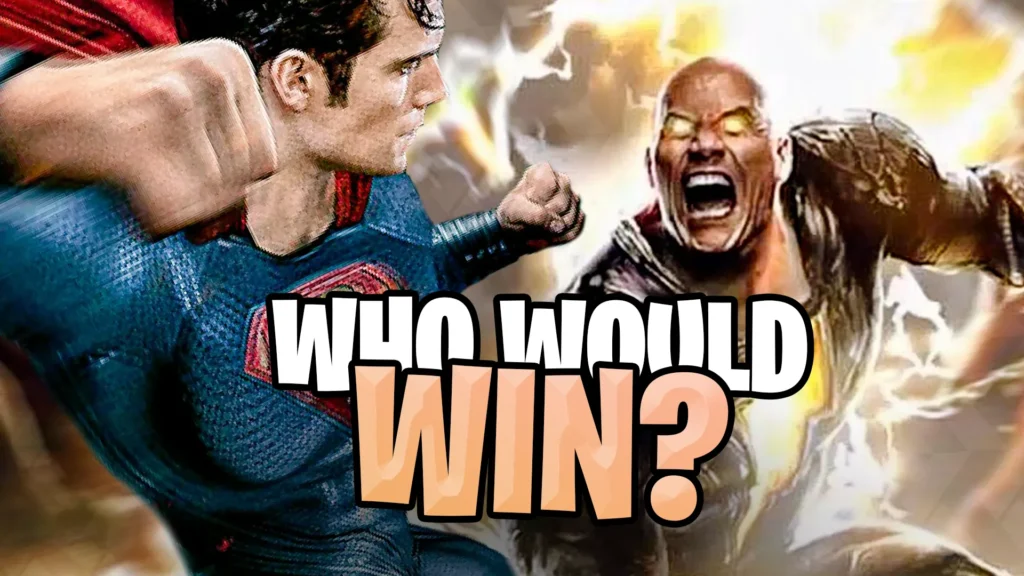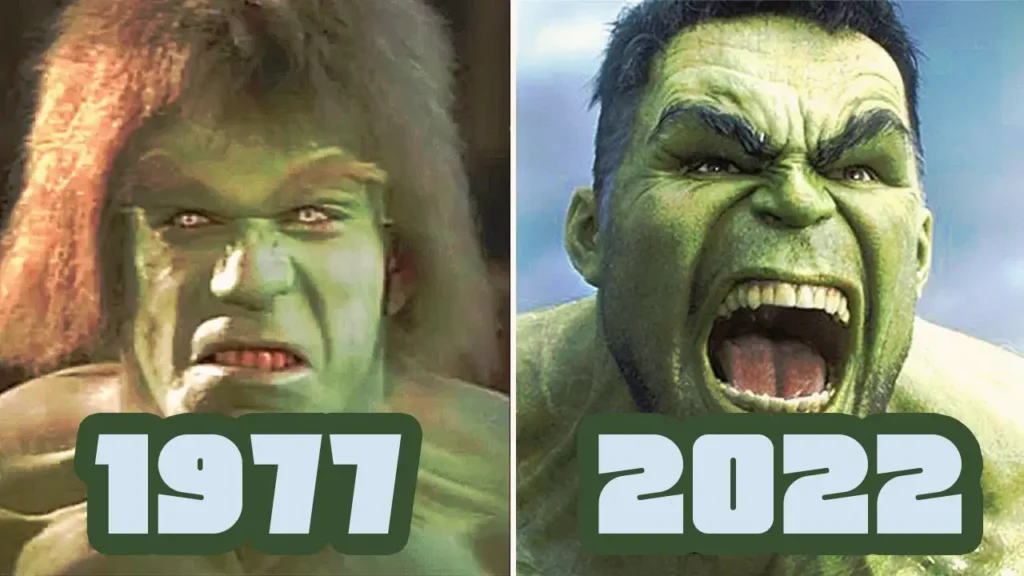Solo Leveling: The Ideal Power Fantasy Anime
Four months before this show came out, I was wrong about Solo Leveling. I couldn’t help but think this had to be overhyped power fantasy trash. I’ve seen a lot of this stuff. Take the most generic bland protagonist. Give him enough traits a weeby fellow like me can relate to, some broken power, and 50 pieces of cardboard with less personality than a pocket pussy with googly eyes on it that you’re supposed to pretend are women. This gets boring after you’ve seen it 100 times, and Solo Leveling isn’t different. Three episodes in, the main character is damn near unrecognizable. This is the same guy on the cover art; he went from “Where’s my hug at?” to AK pop model with a chin sharp enough to split the earth in half. But somehow, it’s good. At the very least, it’s entertaining, and I’ve spent the last few weeks thinking about why. What separates Solo Leveling from the rest of the power fantasy slob?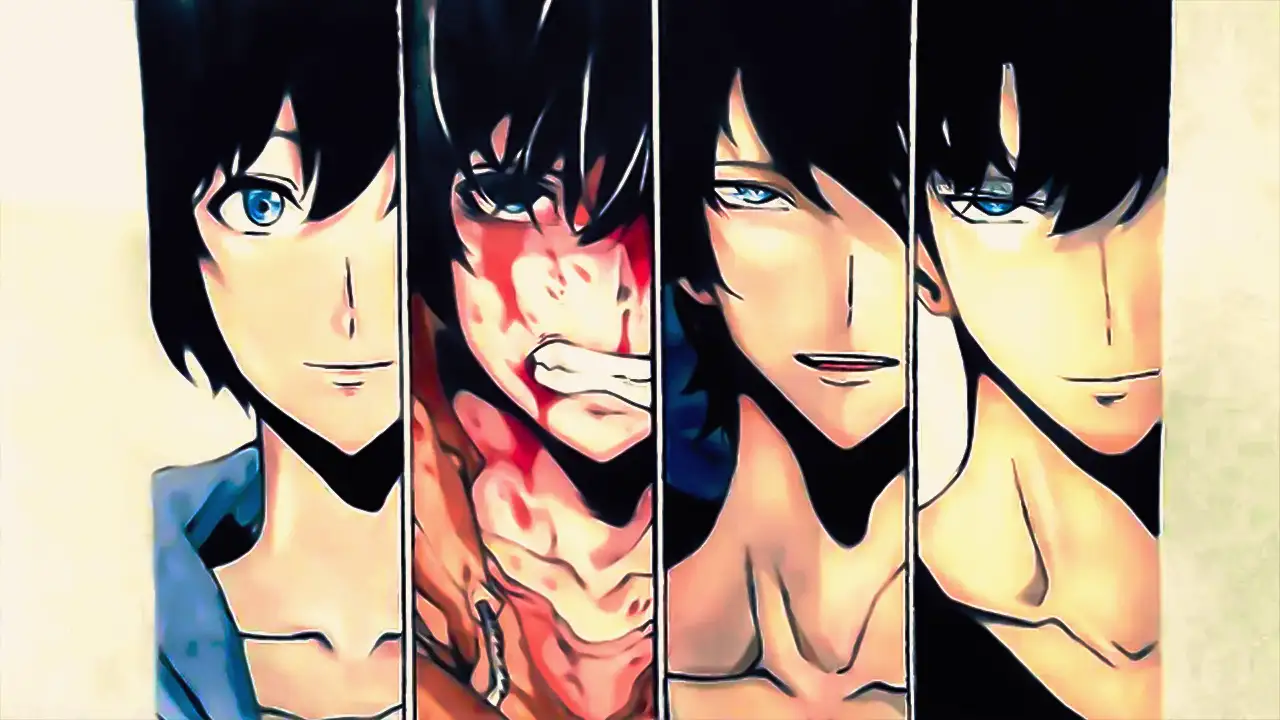
Table of Contents
ToggleWhat Makes Solo Leveling Special?
Why should you give it a chance, even if you normally wouldn’t like this genre? And I think I found the answer. So let’s analyze some scenes, break down some characters, and see how Solo Leveling is trying to save this horrible genre.
Jin Woo's Struggle and Determination
Jin Woo is a hunter, people blessed with superhuman magical ability, speed, strength, healing—pick anything you’ve ever wanted from your favorite fantasy series, and somebody here has it. Hunters are tasked to protect the Earth from invasions of Discord mods and scavenge resources from their caves. The only problem is that this is weak as hell. Bros breaking his knife on goblins? Goblins? Like that’s the tutorial enemy. Like, is he actually making more money from this than a normal job? Bro should really consider retirement. And yet, because of his mother’s illness, because he wants to support his family, he tries through failures, through near-death experiences, through the belittlement of his own peers. Not one time does Jin Woo hesitate to enter the next dungeon and survive off the scraps that he’s able to scrounge together. I think part of that is what separates him, to be honest. He’s easy to root for, to get behind. Put yourself in his shoes and tell me you’re not doing the same thing to keep your mother alive. So when you see this, a huge ominous door, a room filled with giant statues, you can’t help but yell at the screen. Don’t go in there. That’s the most obvious trap ever. What the hell are you doing going in? These people ain’t never played a video game in their life. One hour of Elden Ring gameplay, and this whole situation could have been avoided. Then this fella starts talking about the family he has to get back to, and I can’t even feel bad anymore, because you already know what’s coming.
The Power System and Character Growth
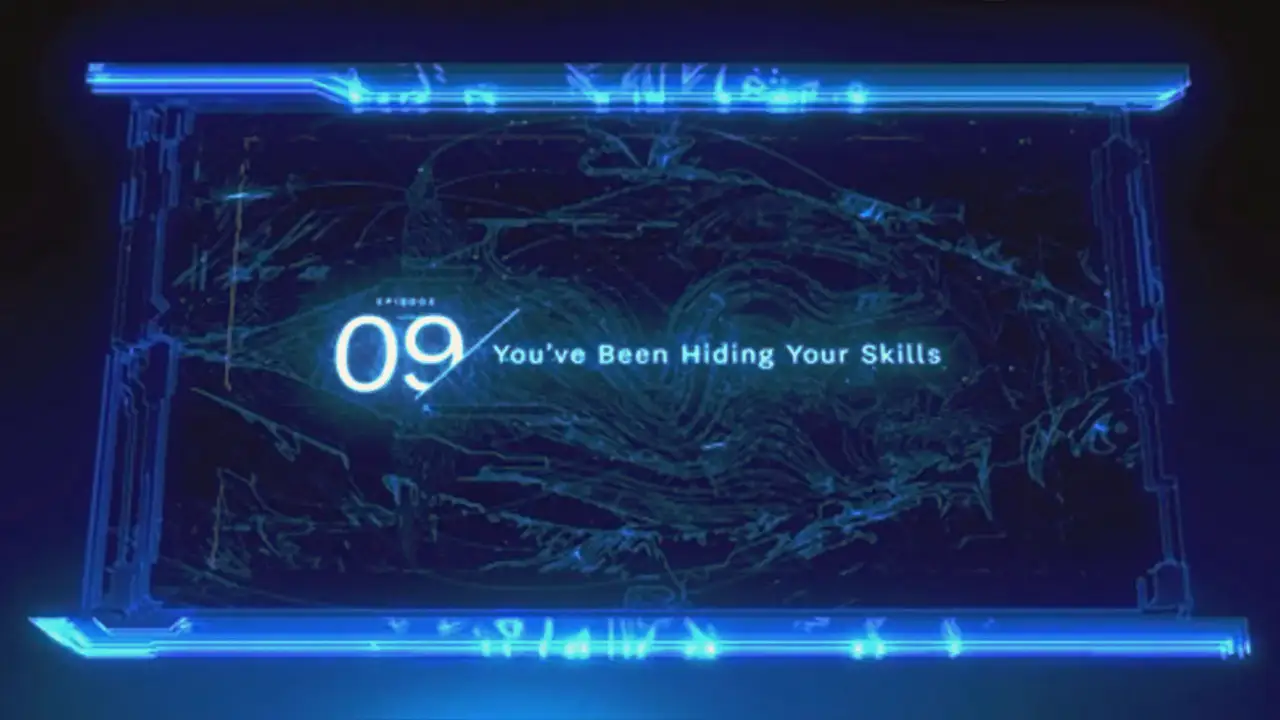 This UI presents Jin Woo with a second opportunity at life, one guided by it. A whole new world of power is granted to him, so long as he commits to the Saitama training regimen, skill points, a level system, abilities, the whole RPG jazz. What’s dope about this system is that yeah, what the hell is its true purpose? What’s hiding behind those blue screens? But also something that for some reason has been lost in power fantasy. Something that Shonen does well. You get to see Jin Woo’s growth. You watch him struggle, and then overcome those goblins and then wolves and then a boss—you can hear his thoughts slowly change from “I could never” until “I know I can.” It doesn’t sound like a lot here, but when you’re watching the show, it makes a world of a difference. So when he has this revolution into the newest BTS member, I can give it a pass, ’cause I was there to see some of it. If you’ve ever had a friend lose a lot of weight, I mean a lot of weight. Hell, if you ever got a haircut, after a while, you’ve seen how a small confidence boost can change people. So when he starts telling the chaldeans gotcha, I’m seeing it, I can give it a pass.
This UI presents Jin Woo with a second opportunity at life, one guided by it. A whole new world of power is granted to him, so long as he commits to the Saitama training regimen, skill points, a level system, abilities, the whole RPG jazz. What’s dope about this system is that yeah, what the hell is its true purpose? What’s hiding behind those blue screens? But also something that for some reason has been lost in power fantasy. Something that Shonen does well. You get to see Jin Woo’s growth. You watch him struggle, and then overcome those goblins and then wolves and then a boss—you can hear his thoughts slowly change from “I could never” until “I know I can.” It doesn’t sound like a lot here, but when you’re watching the show, it makes a world of a difference. So when he has this revolution into the newest BTS member, I can give it a pass, ’cause I was there to see some of it. If you’ve ever had a friend lose a lot of weight, I mean a lot of weight. Hell, if you ever got a haircut, after a while, you’ve seen how a small confidence boost can change people. So when he starts telling the chaldeans gotcha, I’m seeing it, I can give it a pass.
Voice Acting and Animation
And you know what else makes it easier? What else makes Jin Woo supportable the adaptation? When the voice actor is screaming so hard that he’s coughing up blood in real life, it’s hard to think too hard about the story. It just is. Solo Leveling is a pure hype. The momentum in these fights never stops, the choreography is beautiful, and they’re working more angles than Papa John’s. Unlike Papa John’s, the angles in Solo Leveling help sell the scale and the stakes. You see Jin Woo sliding down this behemoth of a monster, and it really helps build that David and Goliath feel the show is going for that energy ramps and ramps and ramps until and when Jin Woo’s on the ropes, that’s when the music comes in. Those strings send goosebumps crawling up your arm. 
The Role of Music in Boosting Emotion
The voice actor is screaming his lungs out, and the choir comes through. And for a moment, for a brief moment, you can feel Jin Woo’s grief and struggle and triumph. You’re able to suspend your disbelief, and slowly you start to root for them too often. Now I feel like we talk about how anime is carried by its animation, and it’s probably true for some shows, but the animation and the music is part of the art. It’s what separates anime from Bonga. That ability to dazzle and whisk you away to another world is magic. It’s immersive. It adds to the experience. When you have animation and music and voice acting this good. If for some reason you don’t believe me, watch one fight from Record of Ragnarok and then come back and watch anything from Solo Leveling and tell me you don’t feel the difference.
Simplicity in Storytelling
And that difference is elevated by the, I think I’ve learned over the years that simple shows aren’t inherently bad. I think as you grow up and move on from little baby shows with no depth, you start to seek things that are deeper, more thought-provoking, more real, and almost start to kind of reject the idea that a simple show can even be good. I love Attack on Titan to death, and when you have a complex story, you need those slower bits to build character and narrative and sometimes just make everything make sense. Simple shows are bad when they try to pretend like they’re more complicated than they really are. I like My Hero too, but the joint training arc in the anime is horrible. If you’re older than 12, you don’t need them to say this shit 20 times. Nothing in Solo Leveling drags. Ever. Yeah, Jin Woo past desires and character motivations, but he doesn’t go around screaming them all the episode without ever doing anything. 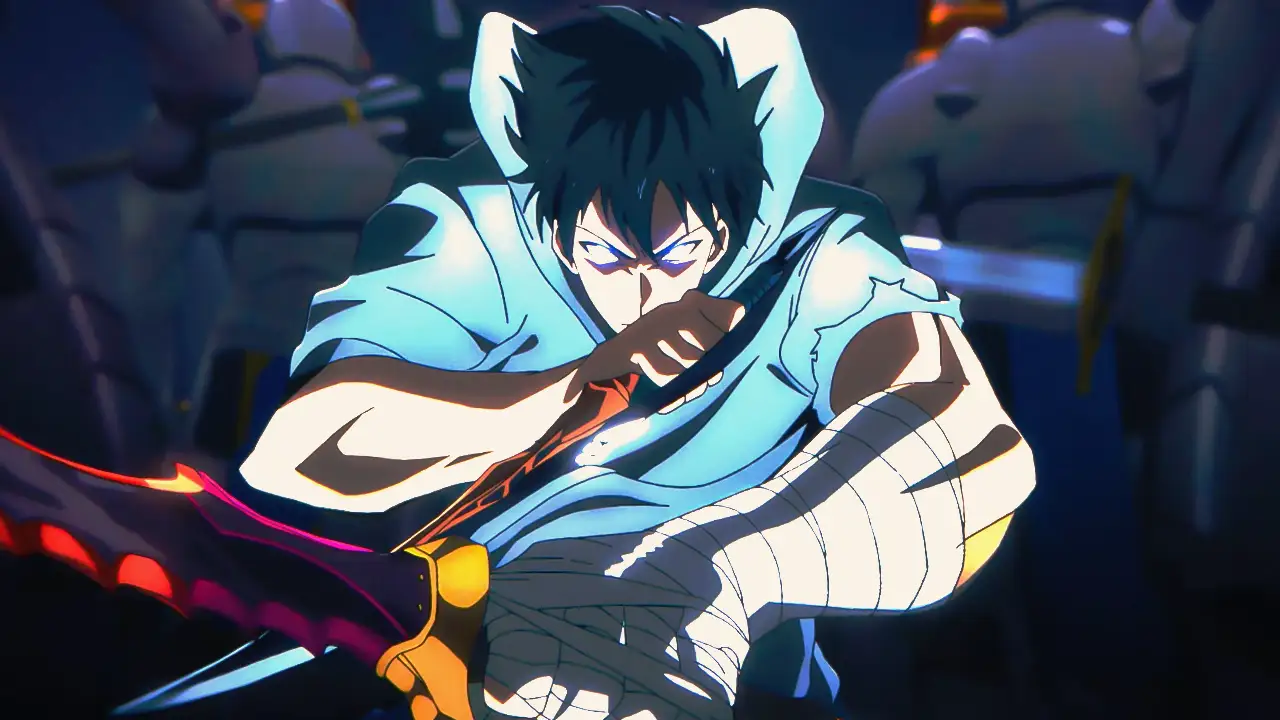 There’s kind of a respectable, quiet dignity to it that we can all get behind. He’ll think about the fight without needing to shut down the momentum, and if there’s a story beat that you don’t like for some reason, chances are it probably won’t last more than 10 minutes before it drags you right back into the coolest shit you’ll see this season.
There’s kind of a respectable, quiet dignity to it that we can all get behind. He’ll think about the fight without needing to shut down the momentum, and if there’s a story beat that you don’t like for some reason, chances are it probably won’t last more than 10 minutes before it drags you right back into the coolest shit you’ll see this season.
Self-Awareness and Execution
Solo Leveling knows what it is. It understands. It’s not the most complicated show. It doesn’t have the most unique premise, and because they have that self-awareness, they don’t waste time talking about the same thing over and over. The reason why it’s in the top ten, the most popular manga ever on my anime list, is because of that self-awareness. It’s unapologetic about what it’s trying to be about, what audience it’s going for, and the execution is just good. They establish just enough roots for you to care a little bit about Jin Woo.
They take your breath away with the animation and the music. Yeah, it has flaws. No, it probably won’t be my pick for anime of the year, but if you like action, if you like hype, if you’ve ever liked power fantasy, I think Solo Leveling deserves a shot. They take your breath away with the animation and the music. Yeah, it has flaws. No, it probably won’t be my pick for anime of the year, but if you like action, if you like hype, if you’ve ever liked power fantasy, I think Solo Leveling deserves a shot.



